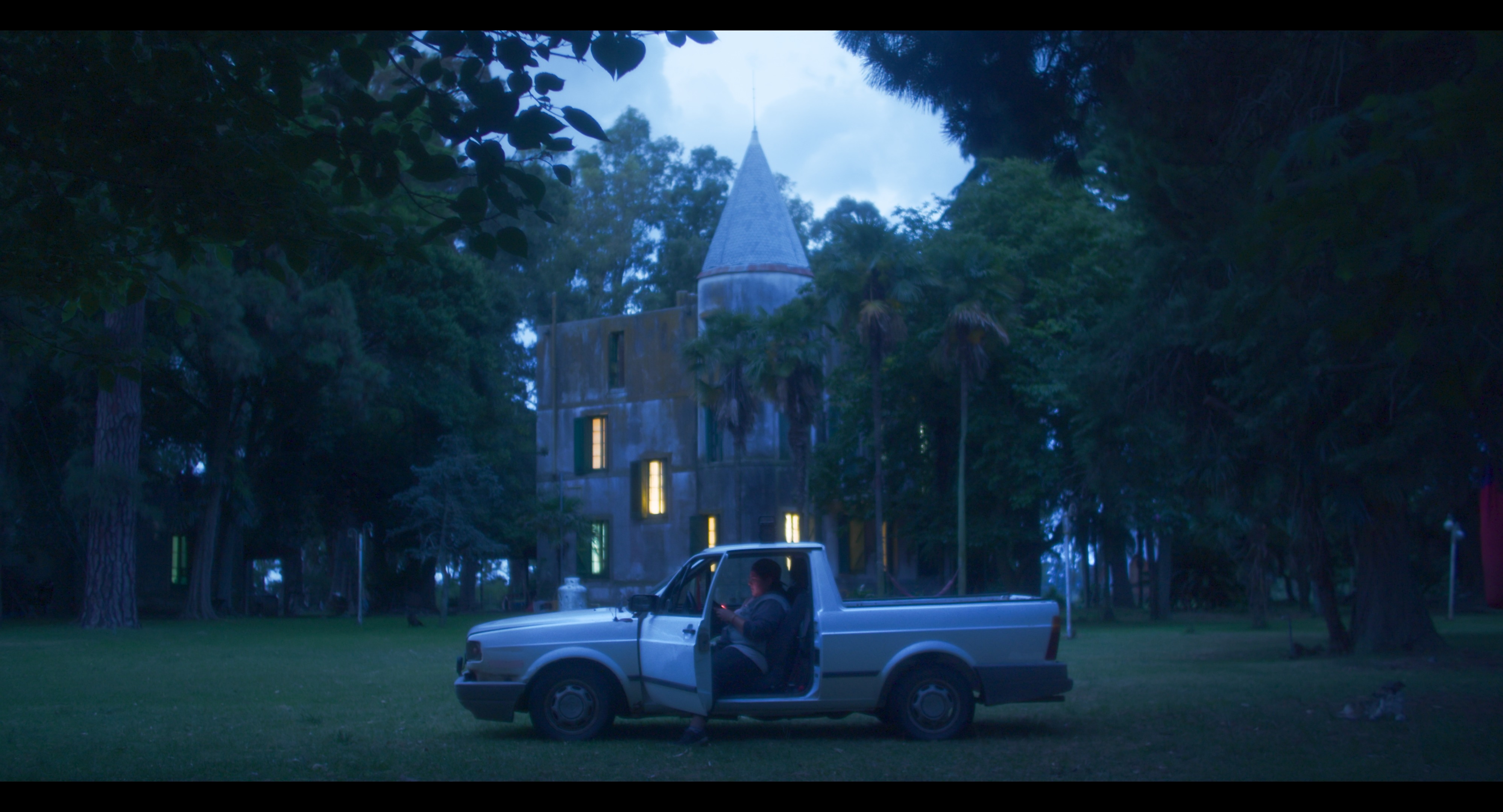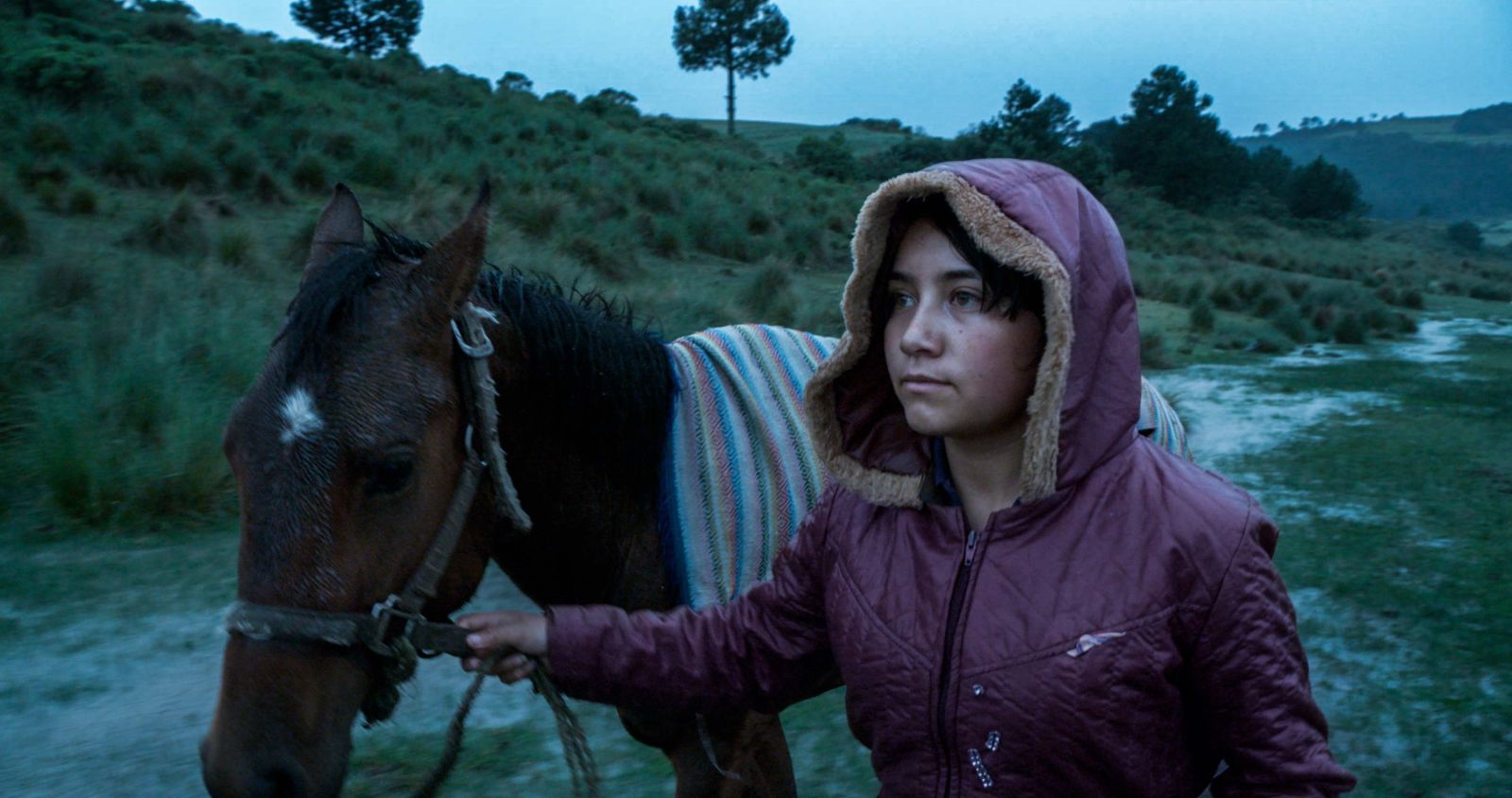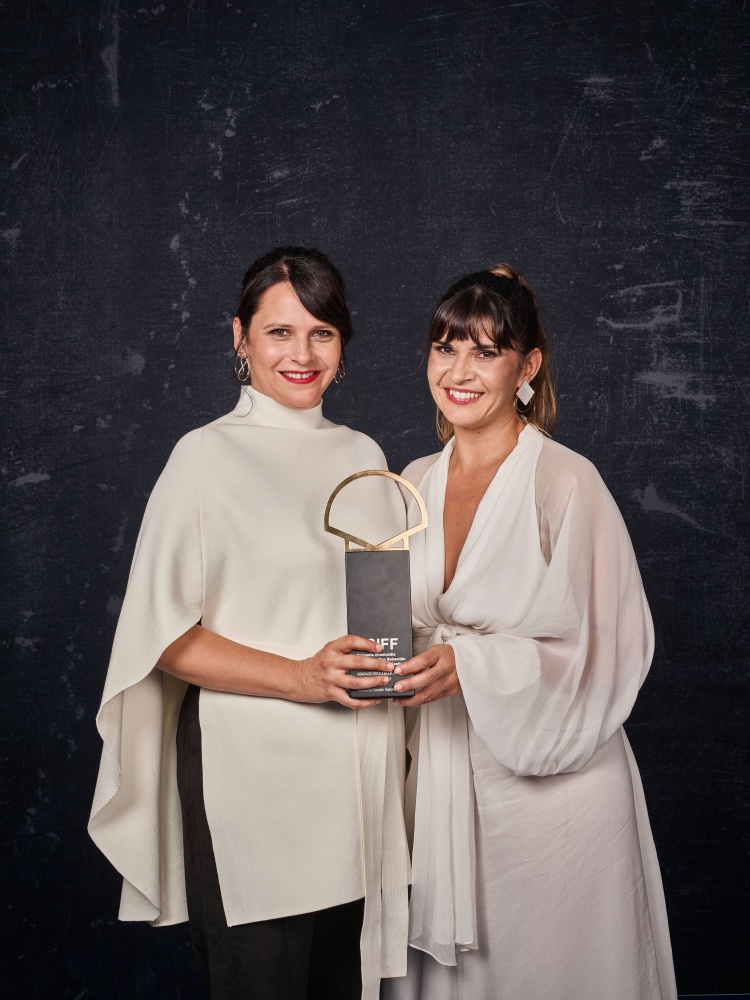
During the search for locations for the new documentary, Martín Benchimol met the castle, the sunset sign of the Argentine aristocracy. Fascinated, he wanted to meet the local owner. In this way, and full of strangeness, he met Justina, with tanned skin, who after spending his whole life working in the castle, inherited the house. After five years of maturing the relationship that was born of this chance, Justina, her mother, and her daughter Alexia, first stood before the camera. So El Castillo was born.
The film jumps between fiction and reality, extending to Justina and Alexia the possibility of representing his life. Domestic duties, unpleasant visits, decisive choices… It analyzes the tension between what is a film and what could be from the fertile field of the autofiche. According to this dynamic, material conditions and personal dreams and aspirations are counterbalanced: the property of the castle, since the roofs that are about to fall or the pending bills cannot be ignored. Facing the headaches involved in maintaining the castle, the real essence of the film flashes, the mother-daughter relationship.
The indelible images of the empty stairs and the hallways announce the documentary custom of the director behind the camera. This is Benchimol's first leap into fiction. It talks about the opportunity of ownership and class mobility, placing Justina and Alexia in the center of their daily lives.
The film presented at Horizontes Latinos has visited the Berlinale and Hong Kong festivals, where Benchimol won the award for the best director before reaching us. On Monday, El Castillo was introduced and, of course, Alexia and Justina were the protagonists.

Although I didn’t know before I saw them, El Eco, my second film today, also sees the non-professional actors represented as protagonists. What I knew beforehand about El Eco was that it was a play to see with the signature of Tatiana Huezo. The Fire Night of Huezo won the award for the best film of Horizontes Latinos in 2021 and the one he has presented this year I think deserves the highest praise.
The tape brings us to a lost village called El Eco, to the family that works the land to survive. In a context of coexistence between life and work, children learn the importance of caring for animals, land and home from early ages. Huezo does not intend to beautify the very long rural routine, but tries to point out the complexity of the matter.
The film reflects on the multiple contents and forms of education, from the exaltation of tradition and knowledge that are being lost to the need to question the conflictive rigidity of customs. In this same line follow the images full of meaning. The plans close to the faces and bodies of the protagonists very much reflect the delicacy and delicacy needed for both care and labor. At the same time, the proximity of the camera produces closed visual frames, as defined as the sharp obligation hertzios. Chained by inherited life and with a narrow future, the village’s young people wonder “what are you going to do?”
The Eco is as skilled as it is rigorous because it flees from the discourses and imaginaries purely pleasurable, focusing on the warm and complicit transparency of the characters and the unconditionality of knowledge, of all types of knowledge. The Eco is a silent force and the echo it leaves is commendable.
Victor Erice, winner of the Donostia Prize this year, asks the journalists of the Festival: “Do you know what the most permanent image holder is?” The answer is not digital media, not photochemical, but oil. Oil painting prevents the scarring of forgetfulness better than... [+]
As if he left the best for the end, it has been a memorable caress 71. Here, by Belgian director Bas Devos, I have seen the last day of the festival. Stefan, a Romanian construction worker, and Shuxiu, an expert researcher in mosses and daughters of Chinese migrants, are in... [+]
On the eighth day of the festival, cinema has lost all ritual and all signs of mysticism. The cinematic experience has become part of the routine: to be credited, to dismiss the staff of the room and to do it directly to the seat. Without magic, it's a mere formality. Today,... [+]






















